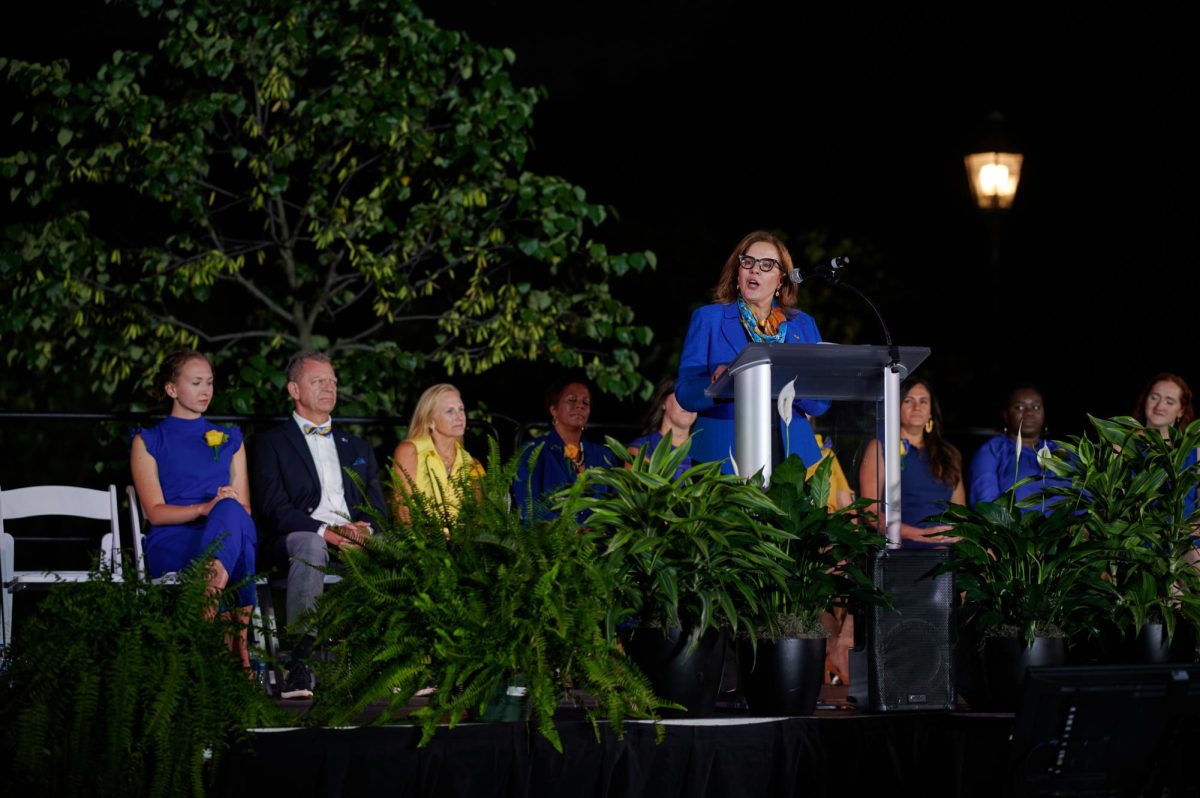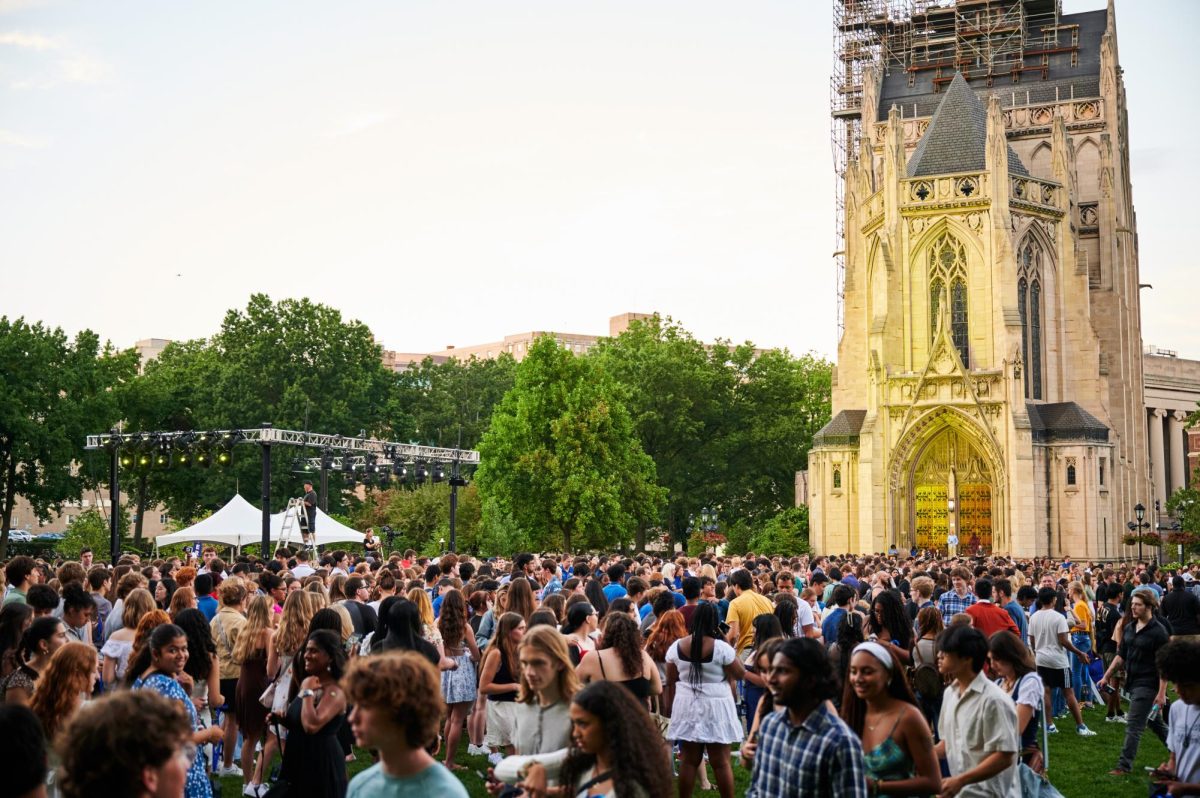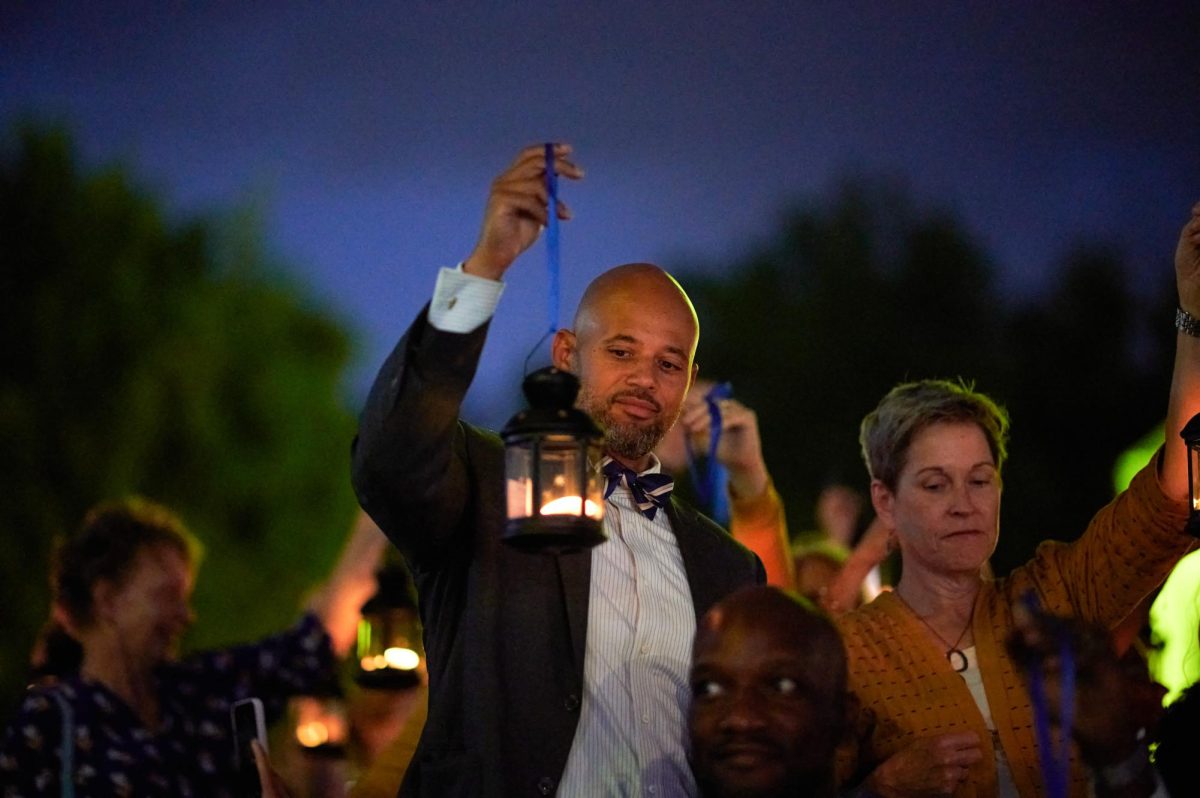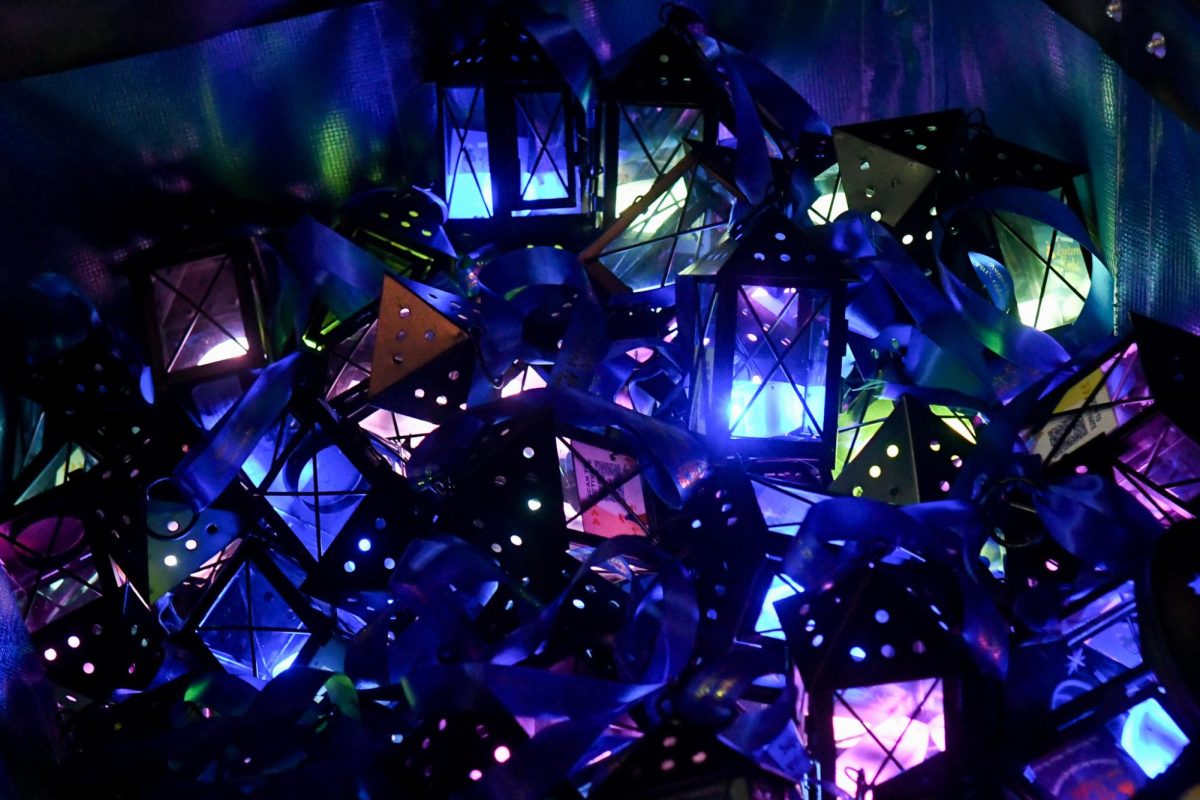Shortly after dark on Sunday evening, thousands of Pitt students and alumni gathered on the Cathedral lawn to celebrate the beginning of the academic year with Pitt’s annual lantern-lighting ceremony.
Lantern Night, led by the Pitt Alumni Association and the Alumnae Council, registered over 3,000 first-year students on Sunday — 600 more than last year — according to Olivia Lynch, the associate director of young alumnae and student programs. This is the largest recorded Lantern Night attendance to date.
”I think there were about 160 flame bearers and more legacy families,” Jennifer Greevy, the director of communications for alumni relations, said, referring to the attendees outside of the student body.

Lantern Night began in 1920 with a group of female students led by sisters Magaret and Stella Stein, the first women to graduate from Pitt. The event predates the Cathedral of Learning and is the oldest tradition on campus.
“It was an event that started for female students, which were very small in number 103 years ago,” Greevy said, “and they got together and they walked around campus, and they had Japanese lanterns, which is how the lantern started.”
Initially, the female upperclassmen, called “flame-bearers,” would pass the lantern to first-year students as they paraded around campus. Today, the ceremony has evolved into Pitt’s alumni lighting the lanterns of new and transfer students.
“Lantern Night symbolizes the passing of the light of learning from one generation of learners to the next,” Greevy said. “The idea was [that] the glow of light, the love of learning, the light of learning, were going to [be passed] forward.”
Although Lantern Night began as a small group of female students, it has gone through many changes to become the massive event it is today — currently, lantern night is open to all students.
Greevy explained how the pandemic played a role in broadening Lantern Night’s message.
“In 2020, we wanted people to feel like they could come together in some way, and they couldn’t do it physically,” Greevy said.
“It seemed like a good time to open it up to all incoming students, male or female, however students identify. At a time when we couldn’t be together, let’s be inclusive,” Greevy added, demonstrating how Lantern Night’s symbolism has come to extend beyond just the alumni.
Sunday also marked the first Lantern Night experience for Pitt’s first female chancellor, Joan Gabel.
“I feel deep gratitude that this flame is now a powerful symbol to all Pitt students, to everyone who overcomes challenges, who experiences difficulties, who goes through whatever they go through to get a university education, and then can share the benefits with others and pass the flame on,” Gabel said in her speech during the ceremony.

When it came time to light the lanterns, the alumni flame bearers and new Pitt students raised their lanterns together. With the help of qr codes, the new students’ lanterns were lit, filling the Cathedral Lawn with thousands of blinking lights.
First-year students Ella O’Rourke and Tatiana Vahatia said they were surprised by the sheer number of people who attended, which made it hard to see the stage from the back of the crowd where they stood.

O’Rourke, a biochemistry major, added that she attended lantern night “because of the tradition and because it was started by two women who were valedictorians, so as women in STEM I feel like it’s important to represent,” citing Lantern Night’s roots as a female-led tradition.
103 years later, Lantern Night’s meaning continues to evolve with every first-year class as it draws more students and alumni. Gable added another layer to the ceremony’s symbolism by emphasizing the importance of personal growth and leadership through the lanterns.
“When you’re uncertain or you’re searching, or you’re asking yourself about this journey, look at your flame, look at your lantern,” Gable said. “It’s a symbol of the journey of learning and expression and it will guide you through your academic career and your own growth.”



